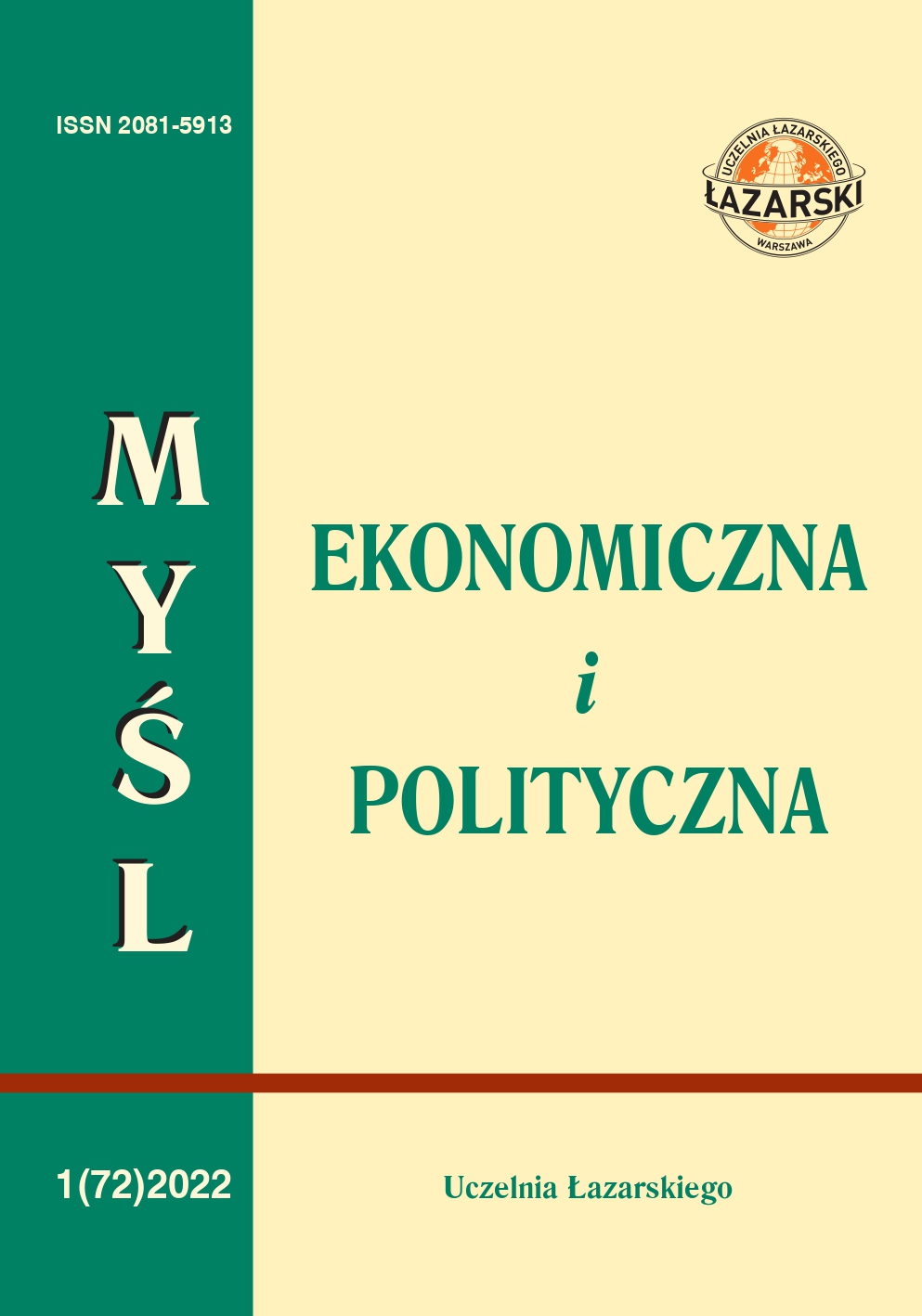Abstract
The paper is aimed at analysing the domestic and international determinants of the collapse of the Soviet Union, and the consequences for Europe, the world and Poland, as well as its place in Central and Eastern Europe. It demonstrates geopolitical changes that took place in Europe and the world, as well as their effects on the reorientation of Poland’s foreign policy at the turn of the 21st century. In the article, the author attempts to answer a few questions and verify several theses and hypotheses related to the reasons and effects of the collapse of the USSR. The key thesis is that the fall of the Soviet Union was provoked not only by the internal factors but also to a great extent by the international situation in Europe and the world, including the Revolutions of 1989 in the states of Central and Eastern Europe. The analysis shows that the collapse of the Soviet Union has had a positive impact on Europe, the world, Poland, and its foreign policy. It contributed to the end of the Cold War, the collapse of the Yalta-Potsdam order, and the creation of a new international order. After the fall of the USSR, Poland’s foreign policy was consistent with the Polish raison d’état and was of great importance for Central and Eastern Europe. It was based on the Euro-Atlantic system and close relations with Germany, France, the United Kingdom, the United States, and the countries of Central and Eastern Europe. In the article, the author refers to classical realism, the theory of foreign policy, and constructivism and applies the following research methods: description and critical analysis of documents and literature on the subject. The source base comprises Polish and foreign published documents, monographs, articles and studies, and press releases.

This work is licensed under a Creative Commons Attribution-NonCommercial-ShareAlike 4.0 International License.
